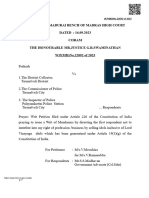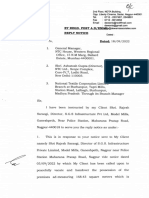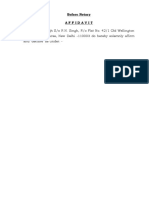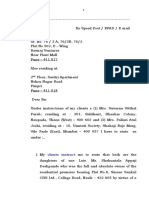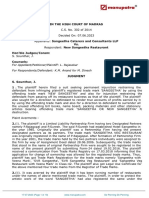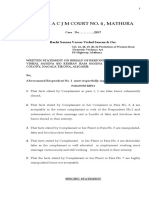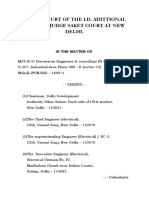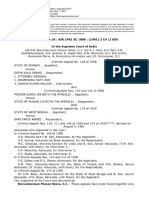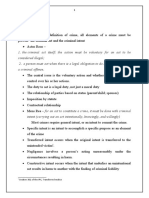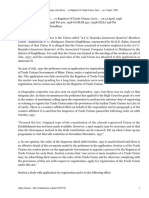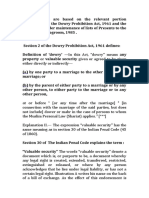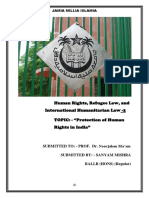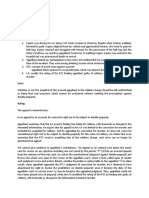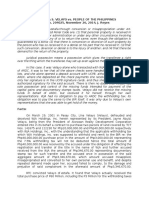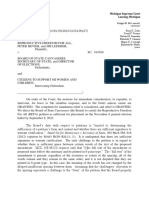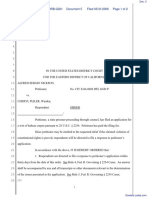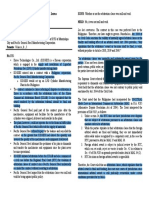0% found this document useful (0 votes)
174 views12 pages"Sudha Mishra vs. State of U.P. Case Review"
The petitioner, Sudha Mishra, had filed three writ petitions challenging the termination of her employment as a part-time teacher. Her first writ petition in 2003 and subsequent appeal in 2007 were dismissed. In her second writ petition in 2008, the court directed the respondent to consider her case for reappointment within 3 months but her representation was rejected in 2012. In her third petition, the petitioner again sought regularization of her service and payment of salary, which had been consistently rejected in her previous petitions. The court observed that the petitioner's claims had already been adjudicated and she was attempting to relitigate the same issues through repeated petitions.
Uploaded by
mohit kumarCopyright
© © All Rights Reserved
We take content rights seriously. If you suspect this is your content, claim it here.
Available Formats
Download as PDF, TXT or read online on Scribd
0% found this document useful (0 votes)
174 views12 pages"Sudha Mishra vs. State of U.P. Case Review"
The petitioner, Sudha Mishra, had filed three writ petitions challenging the termination of her employment as a part-time teacher. Her first writ petition in 2003 and subsequent appeal in 2007 were dismissed. In her second writ petition in 2008, the court directed the respondent to consider her case for reappointment within 3 months but her representation was rejected in 2012. In her third petition, the petitioner again sought regularization of her service and payment of salary, which had been consistently rejected in her previous petitions. The court observed that the petitioner's claims had already been adjudicated and she was attempting to relitigate the same issues through repeated petitions.
Uploaded by
mohit kumarCopyright
© © All Rights Reserved
We take content rights seriously. If you suspect this is your content, claim it here.
Available Formats
Download as PDF, TXT or read online on Scribd
/ 12



